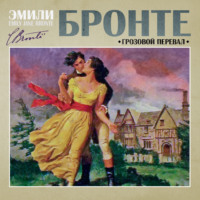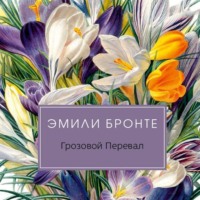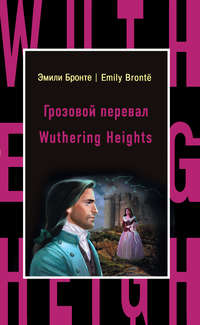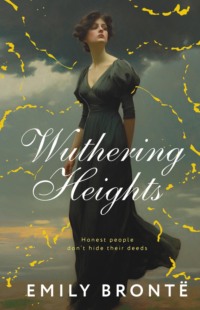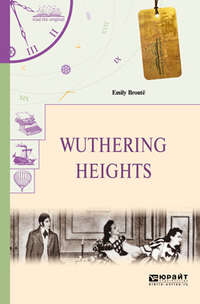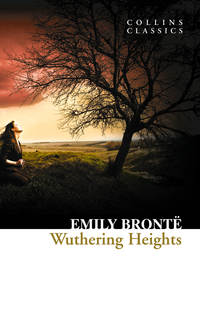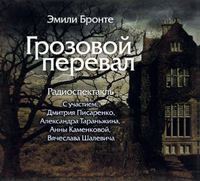Poems by Currer, Ellis, and Acton Bell
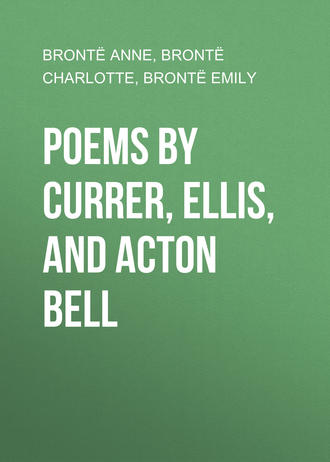 полная версия
полная версияPoems by Currer, Ellis, and Acton Bell
Язык: Английский
Год издания: 2017
Добавлена:
Настройки чтения
Размер шрифта
Высота строк
Поля

Anne Brontë
Poems by Currer, Ellis, and Acton Bell
POEMS BY CURRER BELL
PILATE'S WIFE'S DREAM
I've quench'd my lamp, I struck it in that startWhich every limb convulsed, I heard it fall —The crash blent with my sleep, I saw departIts light, even as I woke, on yonder wall;Over against my bed, there shone a gleamStrange, faint, and mingling also with my dream.It sank, and I am wrapt in utter gloom;How far is night advanced, and when will dayRetinge the dusk and livid air with bloom,And fill this void with warm, creative ray?Would I could sleep again till, clear and red,Morning shall on the mountain-tops be spread!I'd call my women, but to break their sleep,Because my own is broken, were unjust;They've wrought all day, and well-earn'd slumbers steepTheir labours in forgetfulness, I trust;Let me my feverish watch with patience bear,Thankful that none with me its sufferings share.Yet, oh, for light! one ray would tranquillizeMy nerves, my pulses, more than effort can;I'll draw my curtain and consult the skies:These trembling stars at dead of night look wan,Wild, restless, strange, yet cannot be more drearThan this my couch, shared by a nameless fear.All black – one great cloud, drawn from east to west,Conceals the heavens, but there are lights below;Torches burn in Jerusalem, and castOn yonder stony mount a lurid glow.I see men station'd there, and gleaming spears;A sound, too, from afar, invades my ears.Dull, measured strokes of axe and hammer ringFrom street to street, not loud, but through the nightDistinctly heard – and some strange spectral thingIs now uprear'd – and, fix'd against the lightOf the pale lamps, defined upon that sky,It stands up like a column, straight and high.I see it all – I know the dusky sign —A cross on Calvary, which Jews uprearWhile Romans watch; and when the dawn shall shinePilate, to judge the victim, will appear —Pass sentence-yield Him up to crucify;And on that cross the spotless Christ must die.Dreams, then, are true – for thus my vision ran;Surely some oracle has been with me,The gods have chosen me to reveal their plan,To warn an unjust judge of destiny:I, slumbering, heard and saw; awake I know,Christ's coming death, and Pilate's life of woe.I do not weep for Pilate – who could proveRegret for him whose cold and crushing swayNo prayer can soften, no appeal can move:Who tramples hearts as others trample clay,Yet with a faltering, an uncertain tread,That might stir up reprisal in the dead.Forced to sit by his side and see his deeds;Forced to behold that visage, hour by hour,In whose gaunt lines the abhorrent gazer readsA triple lust of gold, and blood, and power;A soul whom motives fierce, yet abject, urge —Rome's servile slave, and Judah's tyrant scourge.How can I love, or mourn, or pity him?I, who so long my fetter'd hands have wrung;I, who for grief have wept my eyesight dim;Because, while life for me was bright and young, He robb'd my youth – he quench'd my life's fair ray — He crush'd my mind, and did my freedom slay. And at this hour-although I be his wife — He has no more of tenderness from me Than any other wretch of guilty life; Less, for I know his household privacy — I see him as he is – without a screen; And, by the gods, my soul abhors his mien! Has he not sought my presence, dyed in blood — Innocent, righteous blood, shed shamelessly? And have I not his red salute withstood? Ay, when, as erst, he plunged all Galilee In dark bereavement – in affliction sore, Mingling their very offerings with their gore. Then came he – in his eyes a serpent-smile, Upon his lips some false, endearing word, And through the streets of Salem clang'd the while His slaughtering, hacking, sacrilegious sword — And I, to see a man cause men such woe, Trembled with ire – I did not fear to show. And now, the envious Jewish priests have brought Jesus – whom they in mock'ry call their king — To have, by this grim power, their vengeance wrought; By this mean reptile, innocence to sting. Oh! could I but the purposed doom avert, And shield the blameless head from cruel hurt! Accessible is Pilate's heart to fear, Omens will shake his soul, like autumn leaf; Could he this night's appalling vision hear, This just man's bonds were loosed, his life were safe, Unless that bitter priesthood should prevail, And make even terror to their malice quail. Yet if I tell the dream – but let me pause. What dream? Erewhile the characters were clear, Graved on my brain – at once some unknown cause Has dimm'd and razed the thoughts, which now appear, Like a vague remnant of some by-past scene; — Not what will be, but what, long since, has been. I suffer'd many things – I heard foretold A dreadful doom for Pilate, – lingering woes, In far, barbarian climes, where mountains cold Built up a solitude of trackless snows, There he and grisly wolves prowl'd side by side, There he lived famish'd – there, methought, he died; But not of hunger, nor by malady; I saw the snow around him, stain'd with gore; I said I had no tears for such as he, And, lo! my cheek is wet – mine eyes run o'er; I weep for mortal suffering, mortal guilt, I weep the impious deed, the blood self-spilt. More I recall not, yet the vision spread Into a world remote, an age to come — And still the illumined name of Jesus shed A light, a clearness, through the unfolding gloom — And still I saw that sign, which now I see, That cross on yonder brow of Calvary. What is this Hebrew Christ? – to me unknown His lineage – doctrine – mission; yet how clear Is God-like goodness in his actions shown, How straight and stainless is his life's career! The ray of Deity that rests on him, In my eyes makes Olympian glory dim. The world advances; Greek or Roman rite Suffices not the inquiring mind to stay; The searching soul demands a purer light To guide it on its upward, onward way; Ashamed of sculptured gods, Religion turns To where the unseen Jehovah's altar burns. Our faith is rotten, all our rites defiled, Our temples sullied, and, methinks, this man, With his new ordinance, so wise and mild, Is come, even as He says, the chaff to fan And sever from the wheat; but will his faith Survive the terrors of to-morrow's death?* * * * * * * I feel a firmer trust – a higher hope Rise in my soul – it dawns with dawning day; Lo! on the Temple's roof – on Moriah's slope Appears at length that clear and crimson ray Which I so wished for when shut in by night; Oh, opening skies, I hail, I bless pour light! Part, clouds and shadows! Glorious Sun appear! Part, mental gloom! Come insight from on high! Dusk dawn in heaven still strives with daylight clear The longing soul doth still uncertain sigh. Oh! to behold the truth – that sun divine, How doth my bosom pant, my spirit pine! This day, Time travails with a mighty birth; This day, Truth stoops from heaven and visits earth; Ere night descends I shall more surely know What guide to follow, in what path to go; I wait in hope – I wait in solemn fear, The oracle of God – the sole – true God – to hear.MEMENTOS
Arranging long-locked drawers and shelves Of cabinets, shut up for years, What a strange task we've set ourselves! How still the lonely room appears! How strange this mass of ancient treasures, Mementos of past pains and pleasures; These volumes, clasped with costly stone, With print all faded, gilding gone; These fans of leaves from Indian trees — These crimson shells, from Indian seas — These tiny portraits, set in rings — Once, doubtless, deemed such precious things; Keepsakes bestowed by Love on Faith, And worn till the receiver's death, Now stored with cameos, china, shells, In this old closet's dusty cells. I scarcely think, for ten long years, A hand has touched these relics old; And, coating each, slow-formed, appears The growth of green and antique mould. All in this house is mossing over; All is unused, and dim, and damp; Nor light, nor warmth, the rooms discover — Bereft for years of fire and lamp. The sun, sometimes in summer, enters The casements, with reviving ray; But the long rains of many winters Moulder the very walls away. And outside all is ivy, clinging To chimney, lattice, gable grey; Scarcely one little red rose springing Through the green moss can force its way. Unscared, the daw and starling nestle, Where the tall turret rises high, And winds alone come near to rustle The thick leaves where their cradles lie, I sometimes think, when late at even I climb the stair reluctantly, Some shape that should be well in heaven, Or ill elsewhere, will pass by me. I fear to see the very faces, Familiar thirty years ago, Even in the old accustomed places Which look so cold and gloomy now, I've come, to close the window, hither, At twilight, when the sun was down, And Fear my very soul would wither, Lest something should be dimly shown, Too much the buried form resembling, Of her who once was mistress here; Lest doubtful shade, or moonbeam trembling, Might take her aspect, once so dear. Hers was this chamber; in her time It seemed to me a pleasant room, For then no cloud of grief or crime Had cursed it with a settled gloom; I had not seen death's image laid In shroud and sheet, on yonder bed. Before she married, she was blest — Blest in her youth, blest in her worth; Her mind was calm, its sunny rest Shone in her eyes more clear than mirth. And when attired in rich array, Light, lustrous hair about her brow, She yonder sat, a kind of day Lit up what seems so gloomy now. These grim oak walls even then were grim; That old carved chair was then antique; But what around looked dusk and dim Served as a foil to her fresh cheek; Her neck and arms, of hue so fair, Eyes of unclouded, smiling light; Her soft, and curled, and floating hair, Gems and attire, as rainbow bright. Reclined in yonder deep recess, Ofttimes she would, at evening, lie Watching the sun; she seemed to bless With happy glance the glorious sky. She loved such scenes, and as she gazed, Her face evinced her spirit's mood; Beauty or grandeur ever raised In her, a deep-felt gratitude. But of all lovely things, she loved A cloudless moon, on summer night, Full oft have I impatience proved To see how long her still delight Would find a theme in reverie, Out on the lawn, or where the trees Let in the lustre fitfully, As their boughs parted momently, To the soft, languid, summer breeze. Alas! that she should e'er have flung Those pure, though lonely joys away — Deceived by false and guileful tongue, She gave her hand, then suffered wrong; Oppressed, ill-used, she faded young, And died of grief by slow decay. Open that casket-look how bright Those jewels flash upon the sight; The brilliants have not lost a ray Of lustre, since her wedding day. But see – upon that pearly chain — How dim lies Time's discolouring stain! I've seen that by her daughter worn: For, ere she died, a child was born; — A child that ne'er its mother knew, That lone, and almost friendless grew; For, ever, when its step drew nigh, Averted was the father's eye; And then, a life impure and wild Made him a stranger to his child: Absorbed in vice, he little cared On what she did, or how she fared. The love withheld she never sought, She grew uncherished – learnt untaught; To her the inward life of thought Full soon was open laid. I know not if her friendlessness Did sometimes on her spirit press, But plaint she never made. The book-shelves were her darling treasure, She rarely seemed the time to measure While she could read alone. And she too loved the twilight wood And often, in her mother's mood, Away to yonder hill would hie, Like her, to watch the setting sun, Or see the stars born, one by one, Out of the darkening sky. Nor would she leave that hill till night Trembled from pole to pole with light; Even then, upon her homeward way, Long – long her wandering steps delayed To quit the sombre forest shade, Through which her eerie pathway lay. You ask if she had beauty's grace? I know not – but a nobler face My eyes have seldom seen; A keen and fine intelligence, And, better still, the truest sense Were in her speaking mien. But bloom or lustre was there none, Only at moments, fitful shone An ardour in her eye, That kindled on her cheek a flush, Warm as a red sky's passing blush And quick with energy. Her speech, too, was not common speech, No wish to shine, or aim to teach, Was in her words displayed: She still began with quiet sense, But oft the force of eloquence Came to her lips in aid; Language and voice unconscious changed, And thoughts, in other words arranged, Her fervid soul transfused Into the hearts of those who heard, And transient strength and ardour stirred, In minds to strength unused, Yet in gay crowd or festal glare, Grave and retiring was her air; 'Twas seldom, save with me alone, That fire of feeling freely shone; She loved not awe's nor wonder's gaze, Nor even exaggerated praise, Nor even notice, if too keen The curious gazer searched her mien. Nature's own green expanse revealed The world, the pleasures, she could prize; On free hill-side, in sunny field, In quiet spots by woods concealed, Grew wild and fresh her chosen joys, Yet Nature's feelings deeply lay In that endowed and youthful frame; Shrined in her heart and hid from day, They burned unseen with silent flame. In youth's first search for mental light, She lived but to reflect and learn, But soon her mind's maturer might For stronger task did pant and yearn; And stronger task did fate assign, Task that a giant's strength might strain; To suffer long and ne'er repine, Be calm in frenzy, smile at pain. Pale with the secret war of feeling, Sustained with courage, mute, yet high; The wounds at which she bled, revealing Only by altered cheek and eye; She bore in silence – but when passion Surged in her soul with ceaseless foam, The storm at last brought desolation, And drove her exiled from her home. And silent still, she straight assembled The wrecks of strength her soul retained; For though the wasted body trembled, The unconquered mind, to quail, disdained. She crossed the sea – now lone she wanders By Seine's, or Rhine's, or Arno's flow; Fain would I know if distance renders Relief or comfort to her woe. Fain would I know if, henceforth, ever, These eyes shall read in hers again, That light of love which faded never, Though dimmed so long with secret pain. She will return, but cold and altered, Like all whose hopes too soon depart; Like all on whom have beat, unsheltered, The bitter blasts that blight the heart. No more shall I behold her lying Calm on a pillow, smoothed by me; No more that spirit, worn with sighing, Will know the rest of infancy. If still the paths of lore she follow, 'Twill be with tired and goaded will; She'll only toil, the aching hollow, The joyless blank of life to fill. And oh! full oft, quite spent and weary, Her hand will pause, her head decline; That labour seems so hard and dreary, On which no ray of hope may shine. Thus the pale blight of time and sorrow Will shade with grey her soft, dark hair; Then comes the day that knows no morrow, And death succeeds to long despair. So speaks experience, sage and hoary; I see it plainly, know it well, Like one who, having read a story, Each incident therein can tell. Touch not that ring; 'twas his, the sire Of that forsaken child; And nought his relics can inspire Save memories, sin-defiled. I, who sat by his wife's death-bed, I, who his daughter loved, Could almost curse the guilty dead, For woes the guiltless proved. And heaven did curse – they found him laid, When crime for wrath was rife, Cold – with the suicidal blade Clutched in his desperate gripe. 'Twas near that long deserted hut, Which in the wood decays, Death's axe, self-wielded, struck his root, And lopped his desperate days. You know the spot, where three black trees, Lift up their branches fell, And moaning, ceaseless as the seas, Still seem, in every passing breeze, The deed of blood to tell. They named him mad, and laid his bones Where holier ashes lie; Yet doubt not that his spirit groans In hell's eternity. But, lo! night, closing o'er the earth, Infects our thoughts with gloom; Come, let us strive to rally mirth Where glows a clear and tranquil hearth In some more cheerful room.THE WIFE'S WILL
Sit still – a word – a breath may break (As light airs stir a sleeping lake) The glassy calm that soothes my woes — The sweet, the deep, the full repose. O leave me not! for ever be Thus, more than life itself to me! Yes, close beside thee let me kneel — Give me thy hand, that I may feel The friend so true – so tried – so dear, My heart's own chosen – indeed is near; And check me not – this hour divine Belongs to me – is fully mine. 'Tis thy own hearth thou sitt'st beside, After long absence – wandering wide; 'Tis thy own wife reads in thine eyes A promise clear of stormless skies; For faith and true love light the rays Which shine responsive to her gaze. Ay, – well that single tear may fall; Ten thousand might mine eyes recall, Which from their lids ran blinding fast, In hours of grief, yet scarcely past; Well mayst thou speak of love to me, For, oh! most truly – I love thee! Yet smile – for we are happy now. Whence, then, that sadness on thy brow? What sayst thou?" We muse once again, Ere long, be severed by the main!" I knew not this – I deemed no more Thy step would err from Britain's shore. "Duty commands!" 'Tis true – 'tis just; Thy slightest word I wholly trust, Nor by request, nor faintest sigh, Would I to turn thy purpose try; But, William, hear my solemn vow — Hear and confirm! – with thee I go. "Distance and suffering," didst thou say? "Danger by night, and toil by day?" Oh, idle words and vain are these; Hear me! I cross with thee the seas. Such risk as thou must meet and dare, I – thy true wife – will duly share. Passive, at home, I will not pine; Thy toils, thy perils shall be mine; Grant this – and be hereafter paid By a warm heart's devoted aid: 'Tis granted – with that yielding kiss, Entered my soul unmingled bliss. Thanks, William, thanks! thy love has joy, Pure, undefiled with base alloy; 'Tis not a passion, false and blind, Inspires, enchains, absorbs my mind; Worthy, I feel, art thou to be Loved with my perfect energy. This evening now shall sweetly flow, Lit by our clear fire's happy glow; And parting's peace-embittering fear, Is warned our hearts to come not near; For fate admits my soul's decree, In bliss or bale – to go with thee!THE WOOD
But two miles more, and then we rest! Well, there is still an hour of day, And long the brightness of the West Will light us on our devious way; Sit then, awhile, here in this wood — So total is the solitude, We safely may delay. These massive roots afford a seat, Which seems for weary travellers made. There rest. The air is soft and sweet In this sequestered forest glade, And there are scents of flowers around, The evening dew draws from the ground; How soothingly they spread! Yes; I was tired, but not at heart; No – that beats full of sweet content, For now I have my natural part Of action with adventure blent; Cast forth on the wide world with thee, And all my once waste energy To weighty purpose bent. Yet – sayst thou, spies around us roam, Our aims are termed conspiracy? Haply, no more our English home An anchorage for us may be? That there is risk our mutual blood May redden in some lonely wood The knife of treachery? Sayst thou, that where we lodge each night, In each lone farm, or lonelier hall Of Norman Peer – ere morning light Suspicion must as duly fall, As day returns – such vigilance Presides and watches over France, Such rigour governs all? I fear not, William; dost thou fear? So that the knife does not divide, It may be ever hovering near: I could not tremble at thy side, And strenuous love – like mine for thee — Is buckler strong 'gainst treachery, And turns its stab aside. I am resolved that thou shalt learn To trust my strength as I trust thine; I am resolved our souls shall burn With equal, steady, mingling shine; Part of the field is conquered now, Our lives in the same channel flow, Along the self-same line; And while no groaning storm is heard, Thou seem'st content it should be so, But soon as comes a warning word Of danger – straight thine anxious brow Bends over me a mournful shade, As doubting if my powers are made To ford the floods of woe. Know, then it is my spirit swells, And drinks, with eager joy, the air Of freedom – where at last it dwells, Chartered, a common task to share With thee, and then it stirs alert, And pants to learn what menaced hurt Demands for thee its care. Remember, I have crossed the deep, And stood with thee on deck, to gaze On waves that rose in threatening heap, While stagnant lay a heavy haze, Dimly confusing sea with sky, And baffling, even, the pilot's eye, Intent to thread the maze — Of rocks, on Bretagne's dangerous coast, And find a way to steer our band To the one point obscure, which lost, Flung us, as victims, on the strand; — All, elsewhere, gleamed the Gallic sword, And not a wherry could be moored Along the guarded land. I feared not then – I fear not now; The interest of each stirring scene Wakes a new sense, a welcome glow, In every nerve and bounding vein; Alike on turbid Channel sea, Or in still wood of Normandy, I feel as born again. The rain descended that wild morn When, anchoring in the cove at last, Our band, all weary and forlorn Ashore, like wave-worn sailors, cast — Sought for a sheltering roof in vain, And scarce could scanty food obtain To break their morning fast. Thou didst thy crust with me divide, Thou didst thy cloak around me fold; And, sitting silent by thy side, I ate the bread in peace untold: Given kindly from thy hand, 'twas sweet As costly fare or princely treat On royal plate of gold. Sharp blew the sleet upon my face, And, rising wild, the gusty wind Drove on those thundering waves apace, Our crew so late had left behind; But, spite of frozen shower and storm, So close to thee, my heart beat warm, And tranquil slept my mind. So now – nor foot-sore nor opprest With walking all this August day, I taste a heaven in this brief rest, This gipsy-halt beside the way. England's wild flowers are fair to view, Like balm is England's summer dew Like gold her sunset ray. But the white violets, growing here, Are sweeter than I yet have seen, And ne'er did dew so pure and clear Distil on forest mosses green, As now, called forth by summer heat, Perfumes our cool and fresh retreat — These fragrant limes between. That sunset! Look beneath the boughs, Over the copse – beyond the hills; How soft, yet deep and warm it glows, And heaven with rich suffusion fills; With hues where still the opal's tint, Its gleam of prisoned fire is blent, Where flame through azure thrills! Depart we now – for fast will fade That solemn splendour of decline, And deep must be the after-shade As stars alone to-night will shine; No moon is destined – pale – to gaze On such a day's vast Phoenix blaze, A day in fires decayed! There – hand-in-hand we tread again The mazes of this varying wood, And soon, amid a cultured plain, Girt in with fertile solitude, We shall our resting-place descry, Marked by one roof-tree, towering high Above a farmstead rude. Refreshed, erelong, with rustic fare, We'll seek a couch of dreamless ease; Courage will guard thy heart from fear, And Love give mine divinest peace: To-morrow brings more dangerous toil, And through its conflict and turmoil We'll pass, as God shall please. [The preceding composition refers, doubtless, to the scenes acted in France during the last year of the Consulate.]

